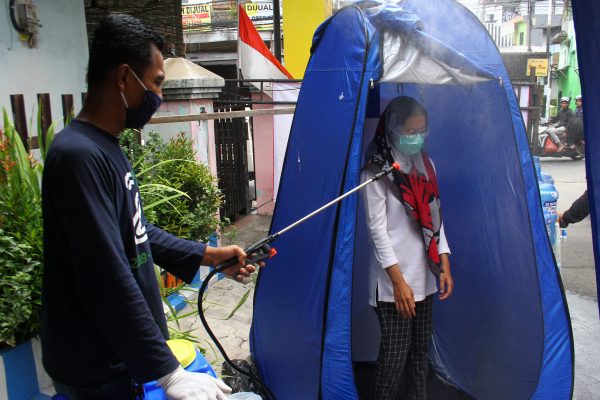COVID-19 has exposed the fragility of global supply chains to the actions of governments in times of crisis. Travel restrictions, mass quarantines and factory shutdowns in China have resulted in disruptions across East Asian supply chains. Apple has issued revenue warnings while Japanese and South Korean auto manufacturers have shut down factories. Asian airlines and the tourism sector have also been hit. Southeast Asian economies and small business owners have suffered from a collapse in tourism due to their dependence on Chinese tourists. China is now facing its first economic contraction since 1992 amid depressed global demand for Chinese goods.
Mitigating this public health emergency and the ensuing political and economic risks in East Asia requires strengthening public trust among domestic constituencies. It requires countries to put geopolitics aside and coordinate on health and economic policies at a regional and international level — especially given the interdependencies of East Asian economies.
Government efforts to contain the contagion across East Asia and the world are coming at a high economic cost. Fear has further contributed to a retrenchment in consumer demand. The heightened risk of bankruptcy and unemployment — particularly for small- and medium-sized enterprises — will disproportionately impact economically vulnerable communities. Businesses and households could default on loans generating losses that could undermine confidence in the financial system.
The immediate focus for governments is to address human suffering through leadership and reassurance. Worryingly, some responses to the COVID-19 outbreak have downplayed the severity of the pandemic, attempted to shift blame and cover up weaknesses, which have undermined public trust, instilled panic and contributed to economic fallout. Conspiracy theories and xenophobia have also found their way into public discourse, heightening geopolitical tensions.
Mitigating economic uncertainty and fear requires consistent and transparent policies to strengthen public trust. A self-motivated and well-informed public is more effective in a pandemic, evidenced by South Korea, Singapore and Taiwan. Their governments undertook firm action in close consultation with health experts, combined with extensive testing and honest self-reporting. These measures were underpinned by transparent and accurate communication that strengthened public trust and cooperation.
But the success of these approaches is dependent on resilient healthcare systems and the effective management of resources to undertake detection and containment policies. Some Southeast Asian economies lack this capacity, raising concerns that COVID-19 is spreading undetected throughout the region. Strengthening coordination between governments is an effective way to shore up capacity in weaker health systems. East Asian governments should pool medical resources and send staff to the worst-hit regions of Asia along with humanitarian aid and medical equipment. There are positive signals. China is already taking the lead on some of these measures having previously received assistance from Southeast Asian governments. But these efforts could be strengthened through greater coordination at a multilateral level. Earlier ASEAN pronouncements on coordinating public health policy looked promising but members subsequently undertook largely unilateral actions, casting doubt over an effective regional response.
Going forward, stronger East Asian economies should look to support weaker and more affected countries through grants or zero-interest loans, financing health spending and spurring greater investment into equitable health systems going forward. Enlisting the private sector and humanising regional supply chains could also ensure the production and distribution of life-saving equipment to those most in need.
A humanised approach to quantitative easing could ensure cash is available to workers and the economically vulnerable. China has already undertaken some of these initiatives. Subsidies for workers’ wages and tax relief for small businesses undertaken in Vietnam, South Korea and China are options available to countries looking to soften the economic blow of COVID-19.
Conflicting approaches to trade through unilateral trade and travel bans continue to limit the effectiveness of pandemic containment. They undermine business and consumer confidence, discourage governments from sharing information and undermine regional connectivity. A coordinated approach to trade liberalisation through a moratorium on tariffs between blocs and individual countries could be one option, while investment in connective technologies such as digital payments and online delivery systems could help businesses mitigate future risks.
Some might baulk at these recommendations. They may be disincentivised by concerns over ‘leaking’ demand to foreign producers. But government ‘concessions’ to foreign firms can facilitate improved access for their own companies to foreign markets.
The onus is now on governments to come together and collectively address the political and economic risks of this pandemic as a second wave of infections threatens East Asia. The positive signals that emerged among ASEAN members and between China, South Korea and Japan could be considered through an ASEAN+3 mechanism.
An ‘every nation for itself’ approach risks heightening tensions at a time of waning trust in governments and rising geopolitical tensions. Undertaking an affirmative and humanised approach while cooperating with others is vital to strengthening public trust and shoring up economies.
John Harley Breen is a freelance international relations consultant based in Dublin.
This article is part of an EAF special feature series on the novel coronavirus crisis and its impact.

